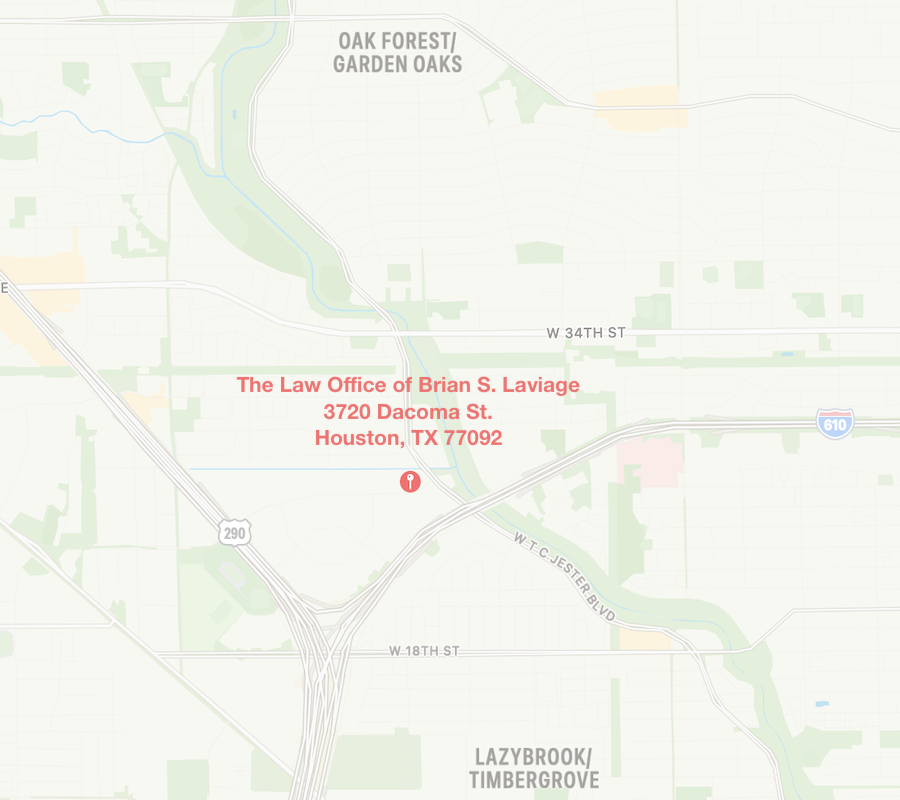
Traveling with a Criminal History
Saturday, Dec 8, 2018 by Brian Laviage
To what extent does a criminal history affect international travel? The answer is far from simple.
Some countries require individuals with criminal records to apply in advance for pre-clearance to enter. Others require only a passport for admission, and there is no background check. Permission to enter could depend on the seriousness of the crime.
In short, many factors come into play, and some destinations have stricter laws than others. Doing your homework ahead of time will prevent unpleasant surprises.
Leaving the U.S. as a Citizen
Every case is different, but generally speaking, a criminal record should not prevent you from traveling outside the country.
You will encounter problems, however, if you have outstanding warrants. Leaving the U.S. could be perceived as an attempt to flee in order to evade arrest.
This is especially true if you plan on traveling by air. Airlines have security protocols in place, and passenger information is checked against government databases. You will probably be arrested in the airport if a felony warrant is discovered. Also, if you are arrested for a serious crime in the future, you will be considered a flight risk.
It is crucial, therefore, to take care of warrants before you cross U.S. borders.
Leaving the U.S. as a Non-citizen
For non-citizens, leaving the U.S. is rarely a problem. Reentering the country may be more difficult.
If you hold a visa or resident alien card, the ID will be scanned. U.S. immigration laws are stricter than they used to be, and immigration officials have joined forces with local law enforcement and the FBI to compare records.
Depending on the nature of your offense, the number of offenses on your record and how long ago your crimes occurred, returning to the U.S. could trigger an immigration hearing. It would be up to an immigration judge to decide whether you should be readmitted or deported to your native country.
If you are a non-citizen, an immigration lawyer should review your criminal history before you make any travel plans. Your attorney will contact the police and immigration authorities to make sure that their records include the latest information on your status.
You might have to submit additional documents or have your fingerprints taken, but these measures will make it easier for you to reenter the U.S. without an investigation.
How a Record Expungement Helps With International Travel
Expungement is a legal process by which you can have certain criminal records cleared from your history. It is highly beneficial if you are applying for a loan, looking for a job or trying to rent an apartment.
Expungement also makes it more convenient to travel to other countries. Depending on which country you visit, it might be easier to cross the border and pass through security checkpoints without incident. It also may be necessary when a certificate of good conduct is needed for use abroad.
State laws vary, but in Texas, it is possible to have records of certain misdemeanors and even felonies expunged. Here are some examples:
- An arrest that did not lead to criminal charges.
- A criminal charge that was dismissed in the end.
- Some juvenile misdemeanor offenses.
- Some alcohol-related offenses committed when a minor.
- Criminal records that exist as a result of identity theft if the thief was eventually apprehended.
- A conviction that was ultimately reversed by the Texas Court of Criminal Appeals.
- A conviction that was ultimately pardoned by a Texas governor or U.S. president.
Once your record is expunged, according to Texas law, you are not obligated to admit to having a criminal history unless you are questioned under oath. In that case, you may simply swear that records of the incident were expunged.
When it comes to international travel, however, the interpretation of expunged records varies from country to country. Your attorney can review in advance the laws and border protocols at your destination. This will ensure that you are prepared for questions and know how to answer legally and truthfully. In some countries, false statements or evasion can result in a permanent ban.
Expungement should not be confused with having your records sealed; sealed records are simply made unavailable to the public.
It is wise to have an attorney handle the expungement process rather than apply on your own.
Traveling to Canada
For people with criminal histories, travel between the U.S. and Canada can be difficult. Canada now has access to criminal information stored in the FBI’s National Crime Information Center. U.S. officials, likewise, have access to the database of the Canadian Police Information Centre.
Since the two countries have agreed to share this data, Canadian border agents have your background at their fingertips if they choose to check. They can see all convictions dating back to your 18th birthday. Officers at points of entry have final discretion on who comes in, and decisions are made on a case-by-case basis.
Canada also has some of the strictest laws governing immigration and travel. Even nonviolent crimes that are overlooked at checkpoints in other countries result in inadmissibility in Canada. Examples include dangerous driving, theft, drug possession and shoplifting. DUI is taken very seriously. You may be denied entry for just a single charge.
Canada goes by its own laws when determining admissibility. Crimes considered misdemeanors in the country where they occurred are treated as felonies if they are felonies in Canada.
It is possible to apply for relief if you have been denied entry. Attorneys sometimes succeed in arguing for admissibility if the crime on record is considered less serious in the U.S. That might be the case if the offense carries a maximum sentence of 10 years or less.
The Canadian government considers these factors when determining admissibility:
- The nature and severity of the crime as it is characterized in Canada.
- How many offenses the potential visitor has on record.
- How long ago the offense occurred.
- The likelihood of the visitor committing a crime in Canada.
If you are denied entry, you may petition the Canadian government for rehabilitated status. You are eligible to apply under these circumstances:
- At least five years have passed since the completion of your sentence.
- The terms of your probation or parole are satisfied.
- You have paid all associated fines.
You cannot apply for a Canadian Temporary Resident Permit unless you have also initiated the criminal rehabilitation process.
The best way to ensure admissibility is to have your criminal history expunged before you travel.
Obtaining a Passport
For U.S. citizens, a criminal history has no bearing on obtaining a passport. However, the government may withhold your passport for the following reasons:
- You are considered a threat to national security.
- You owe more than $2,500 in unpaid child support.
- You have an outstanding debt with the IRS.
You should apply for a passport several months before you travel. Applications are submitted at the post office. You can find the nearest location and schedule an appointment on the U.S. Postal Service website.
The website of the U.S. Department of State furnishes application forms and outlines the documents and fees you will need at the post office. Do not sign your application form; your signature must be witnessed by a postal employee.
With education and careful planning, you can avoid unexpected hassles when you travel.

